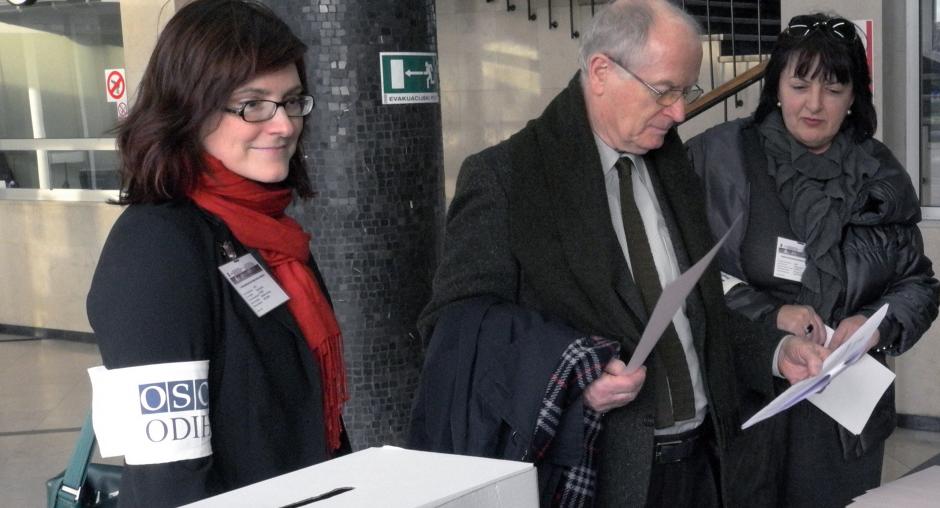ODIHR report says Croatia’s December elections pluralistic and transparent, recommends improvements to legal framework and compilation of voter lists

Croatia’s parliamentary elections on 4 December 2011 were pluralistic and administered transparently but further steps should be taken to improve the legal framework and the compilation of voter lists, concludes the final report released by the OSCE Office for Democratic Institutions and Human Rights on 3 February 2012.
The report says that the State Election Commission performed its duties efficiently and transparently while electoral contestants were able to campaign freely. The media provided the electorate with access to a plurality of views.
According to the report, the legal framework provides a sound basis for the conduct of democratic elections although it lacks detail and clarity on certain issues. It suggests improvements to candidate registration, election observation, and constituency delimitation, to enhance compliance with OSCE commitments. The report also notes a broad consensus among electoral stakeholders that the legal framework be reviewed, consolidated, and harmonized.
Despite a legal requirement for the number of registered voters in the ten territorial constituencies not to differ by more than 5 per cent, the final voter lists indicate variations of up to 33 per cent, undermining the equality of the vote.
The high number of registered voters relative to the 2011 preliminary census results is also cited as a concern.
The report finds that new campaign finance regulations enhanced the transparency and accountability of the process. While the law provides for a timely and effective system of electoral dispute resolution, the report notes a lack of clarity with regards to deadlines for filing complaints and appeals.
